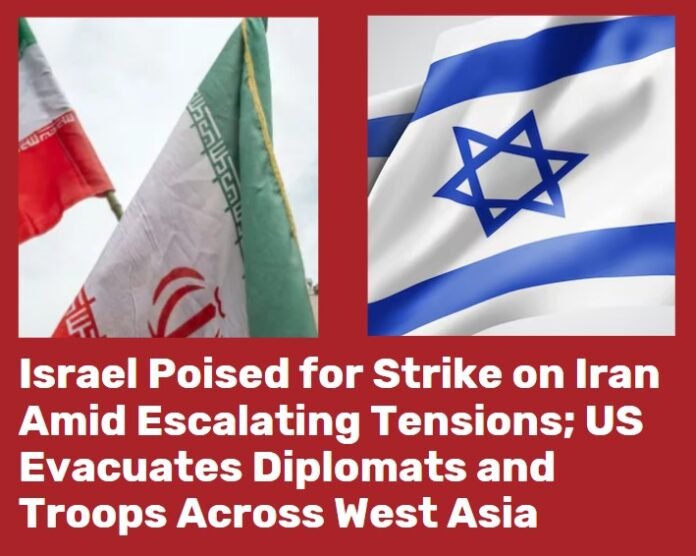Amid mounting tensions in the Middle East, Israel has reportedly informed the United States of its readiness to launch a military operation against Iran, according to multiple sources cited by CBS News. The development has triggered a swift and strategic response from Washington, which has begun evacuating non-essential personnel and dependents from several American outposts across the West Asian region. The urgency of the situation is underscored by concerns that Iran could retaliate against U.S. interests in neighboring Iraq should Israel initiate a military strike.
The U.S. State Department, in coordination with the Department of Defense, issued a directive on Wednesday urging all non-emergency government officials stationed in Iraq to depart immediately. The warning was accompanied by a formal advisory to American citizens in the region, reflecting the seriousness of the evolving security threat. Officials cited “heightened regional tensions” as the justification behind the sudden evacuation order.
Further escalating the sense of crisis, CNN reported that the U.S. has authorized a voluntary departure for military families based in sensitive locations throughout West Asia. A senior defense official, speaking on condition of anonymity, confirmed that the U.S. Central Command (CENTCOM) is closely monitoring the situation as tensions between Israel and Iran continue to intensify. The precautionary drawdown of personnel is viewed as part of a broader contingency plan aimed at safeguarding American assets and lives in a region on the brink of military confrontation.
General Michael Kurilla, the head of CENTCOM, has postponed his scheduled testimony before a Senate committee in light of the escalating crisis. This move signals the gravity of the potential conflict, suggesting that military leadership is now focused entirely on managing developments on the ground. The Pentagon has reiterated that the “safety and security of U.S. service members and their families remain our highest priority,” further underscoring the high-alert status of American defense forces across the region.
Former President Donald Trump, weighing in on the situation, commented that the U.S. government is taking necessary precautions. “They are being moved out because it could be a dangerous place… we’ve given notice to move out, and we’ll see what happens,” Trump said. His remarks align with longstanding American concerns over Iran’s military ambitions and its controversial nuclear program.
Despite the rising threat of military conflict, diplomatic channels have not been entirely abandoned. Trump’s Middle East envoy, Steve Witkoff, is reportedly continuing preparations for a sixth round of negotiations with Iranian officials concerning the country’s nuclear development program. However, the future of these talks remains uncertain, particularly as earlier dialogue has stalled amid Tehran’s refusal to slow its nuclear enrichment and Israel’s hardening stance.
Trump reiterated a firm red line during his statement, stressing that Iran must never be allowed to obtain nuclear weapons. “They can’t have a nuclear weapon. Very simple. They can’t have a nuclear weapon. We’re not going to allow that,” he said, a stance that echoes both bipartisan consensus in Washington and Israel’s long-standing position on Iran’s nuclear ambitions.
The backdrop to these developments is the alarming deadlock in nuclear negotiations, with both U.S. and Israeli intelligence suggesting that Iran is now dangerously close to weapons-grade enrichment capabilities. As a result, the strategic calculus has shifted rapidly in recent days, with the potential for a sudden Israeli airstrike growing stronger and the regional security architecture bracing for aftershocks.
The situation remains volatile, and while full-scale war has not yet begun, diplomatic failures and military posturing suggest that the margin for peaceful resolution is narrowing. For both regional powers and global stakeholders, the coming days will be crucial in determining whether the crisis can be defused or if the Middle East will once again descend into open conflict.
This is a web-generated news web story. Hashtags: #MiddleEastTensions #IsraelIranCrisis #USMilitaryWithdrawal #IranNuclearTalks #Geopolitics





